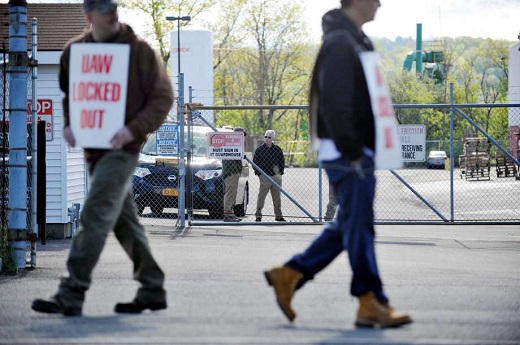You, your management team, and your employees have been to collective bargaining and mediation, but the meetings have not been fruitful. You are all frustrated with the outcome and it is looking like a strike is imminent. All it is going to take is a vote by the union to seal the deal.
It is important to understand your legal options, and the ways you can keep your company intact. Knowing the basics and developing a sound strategy will help you and your company to correctly deal with this emotionally charged situation.
What is a Strike?
A strike can occur at any company, union or non-union. It usually involves a team of employees (non-management) who desire a change or improvement to their working conditions.
Most organizations and unions have exact procedures that must be followed prior to any strike taking place. Both management and workers are expected to have faithfully exhausted all possibilities and to have reached an impasse before a strike takes place.
Who Can Strike?
Any employee who works at the facility on a full-time basis can strike. Part-time employees, independent contractors and families of the strikers are not permitted on the premises to take part in the strike.
In addition, federal government workers, as well as most state and local government agencies are not allowed to strike (i.e. firefighters, police officers).
What are the Striking Employee’s Rights?
If picketing occurs, the picket line must be peaceful and picketers cannot prohibit individuals from entering the employer’s premises. Most policies state that employers can terminate or discipline striking employees who engage in violence against non-striking workers. The same applies to striking employees who commit violence or destruction to the employer’s property.
The striking employees are allowed to picket on the premises in selected areas. Picketing usually occurs on the street in front of an employer’s building allowing for the greatest visibility to management, the public and the media.
What are the Employer’s Rights?
This can be an imprecise area, depending on whether the employer runs a union or non-union shop and how the policies have been written. Some policies state only employees who have been trained and have previously worked at that facility can be there during a strike (i.e. individuals who have retired, quit or are current managers). Other policies may state that the employer can hire replacement workers to continue business operations.
Employers do not have to pay striking employees, provide them with benefits, or guarantee them a position in the organization when the strike is over.
When Should You Hire Security?
It is always a good idea to consider outside security to protect your temporary workers, your physical building and other assets.
Outside security can also be hired to ensure temporary workers are safe and feel secure when they come onto and leave the premises. Often, just the physical presence of security is enough to keep aggressive behavior at bay.
SACS Consulting & Investigative Services Offers Security Options
SACS Consulting & Investigative Services, Inc. can provide companies with security in the event of a threatening atmosphere due to a strike. Call us today at 330.255.1101 to learn more about ways we can help you to secure your premises and to keep your people safe.

